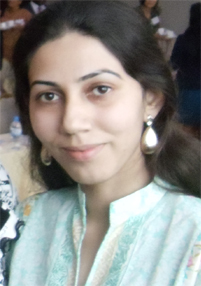Education plays an essential role in sustainable development. It is the foundation of every empowered society, offering a better life for its citizens. There is a pressing need to enable children to develop the skill set required to survive in a knowledge-based and technology-driven world, as well as to contribute to the economic development of their country. Studies report that alarmingly high drop-out rates, such as those in Pakistan, lead to a decline in human capital, and ultimately hamper economic and social development. In order to counter this crisis, every child must be enrolled in schools to shape a better future. The present situation, however, is far from ideal. Pakistan is facing a profound educational crisis, with millions being excluded from their fundamental right to education. AlifAilaan reports that around 25 million children in Pakistan are out of school. Making education accessible for all requires everyone, in whichever capacity, to promote and protect each individual’s fundamental right to education rather than laying the burden solely with the government. Instead, initiative starts with the common man.
There are numerous exceptional people from within our society who have exemplified how action can be taken to initiate meaningful change. In Islamabad, a man from a village in MandiBahauddin, has vowed to make a difference in the lives of underprivileged children. Mohammad Ayub, popularly known as Master Ayub, is a government servant who for the past 30 years has spent a majority of his after work hours teaching underprivileged children. What began as imparting informal classes to 10 children from the nearby katchiabadis in 1986, has now evolved into a free school in a public park, educating around 200 children. Of the hundreds of children that he has taught over the years, some are now working in government institutions while others are successfully running their own businesses.
Even some celebrities are taking massive action to create change. Witnessing the plight of underprivileged children in Thar during the filming of his music video, Shehzad Roy embarked on a bold movement for change and launched the Zindagi Trust in 2002. His NGO is directed at reforming public schools, educating working children, and influencing the government to improve and amend the education policies. Additionally, he has also initiated a documentary series, ChalParha, which highlights issues hampering Pakistan’s education system and need for reform. His work goes beyond merely creating awareness and has influenced policy on certain practices as well. After airing an episode on corporal punishment, Pakistan’s provincial assemblies passed a resolution against corporal punishment. Shortly after, the National Assembly unanimously passed a bill making corporal punishment an offence
Pakistani youth is proving that one does not need to be of a certain age to initiate change. A prominent agent of change in education is MalalaYousafzai, a young girl with a deep passion for learning. She voiced her plight of living under the Taliban’s threats and women’s denial to education to a growing public platform, early in 2009, long before she became an international figure for change. Despite undergoing a traumatic encounter with the Taliban, Malala’s fight for right to education for girls did not end. In 2013, Malala became a global advocate for the millions of girls being denied a formal education. In 2013, Malala and her father co-founded the Malala Fund to promote awareness of the impact of girls’ education. In Pakistan, Malala’s Fund works with local education organizations to expand their capacity to enroll more girls in schools. She has boldly claimed “Some people only ask others to do something. I believe that, why should I wait for someone else? Why don’t I take a step and move forward?”- remarkable words which she courageously puts to practice.
There are various platforms that people can use to become agents of change. Many youngsters have used Idara-e-Taleem-o-Aagahi’sEducation Youth Ambassadors (EYAs) Programme to create a change in their communities. It is a highly recommendable option for those who want to create change but do not know how. Bilawal Khan Solangi, an EYA, has shaped future employment options of girls in his village. The village he grew up in lacked facilities for girls to receive education. Bilawal took a stand, starting with creating awareness about the issue. Soon, he set up a Temporary Learning Center (TLC) exclusively for girls, designed to educate and empower the girls of the village. Currently, about 170 girls are enrolled at this school and 97 girls have successfully appeared in government administered annual examinations. Another EYA helps underprivileged students to cover their education expenses. Kakar Hayat, a youngster hailing from an underdeveloped district in Balochistan, supports 200 students in various government schools in the district. Operating through his NGO Initiative for Social Change and Development, he covers all expenses of their tuition fee, books, and uniform.
There are many other champions of education in Pakistan who are tirelessly working to see all children receive their right to education. For economic and developmental progress, and for Pakistan to be at par with other developing/developed nations, it is pertinent to address the problem of low literacy and enrollments urgently. With each responsible citizen advocating and initiating change in education, in whatever capacity, we can achieve a milestone in addressing the education emergency in Pakistan. Rather than wait for change to happen, we must strive for it, and we must strive for it now!





